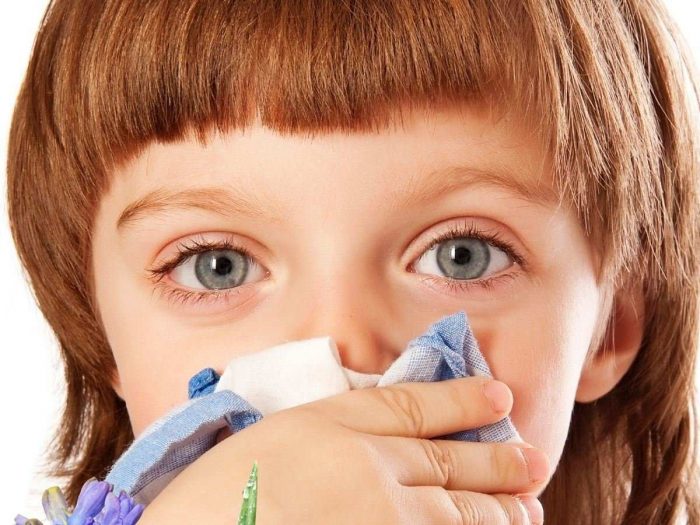Home remedies for allergies include honey, ginger, green tea, peppermint, chamomile, thyme, lime, oatmeal, and apple cider vinegar. You can also perform saline nasal irrigation with the help of a neti pot. Allergies are the most common health conditions in the world, but many of them can be prevented by following easy preventative measures on a regular basis. Some basic precautions include avoiding physical interaction with plants, dust, and animals. Always use clean and thoroughly washed pillows and bedsheets, and after being outside for a long time, take a shower to eliminate any pollen that may have caught in your hair or clothes. Air conditioners and air fresheners also help to keep the air germ-free and dehumidified. Also, replacing carpeting with hardwood floors is a good way to reduce allergens in the home. Many people are unclear as to what an allergy really is, and quite simply, it is a hypersensitivity disorder of your immune system. Your body comes into contact with a relatively harmless substance, but the body reacts as though it is a foreign invader. Just like when a toxin or a virus enters the body, the immune system activates certain types of white blood cells via Immunoglobulin. This results in the inflammation and irritation, either externally or internally. This can be mild redness all the way up to hives or swollen areas of the body. Some allergic reactions can even be deadly if they cause your throat to swell, or if they cause anaphylactic shock. Different sources of allergies are deficiencies of nutrients, repetitive as well as monotonous diets and chemicals, through which pesticides or preservatives enter the food chain. As many as 35 million Americans suffer from various forms of allergies, as researched by the American Academy of Allergy, Asthma, and Immunology. However, Immuno Labs in Fort Lauderdale, Florida speculates that the figure is much higher. Maintaining a proper diet helps a lot in dealing with allergies. It forms the basic healthy foundation for your body and creates strong immunity to fight against various allergic symptoms like coughs, colds, fevers, itching and breathing infections. Furthermore, the consumption of food in your diet should never be monotonous. Maintain a rotational diet to ensure that you are getting all the nutrients and necessary elements to keep yourself strong, healthy and immune to allergies. Also, be sure to make yourself aware of indoor allergens that may be affecting your health, besides food. There are many pharmaceutical options for getting rid of allergies, but they can often cause drowsiness, headaches, and a wide variety of other side effects that may be more harmful than the allergies in the first place! On the contrary, home remedies may take time to cure and prevent allergies, but if they are followed properly, one can stay healthier without suffering from allergies and the irritating symptoms that come along with them. [1] [2] [3] [4]
Home Remedies for Allergies
Home Remedies for Allergies are as follows:
Honey
In case you choose to use honey as an anti-allergenic home remedy, the local variety will be most beneficial. Consume honey with teas, bread or just plain in small portions on a spoon. Local honey makes your body resistant to various types of pollens. Honey should never be cooked since that destroys the beneficial qualities of this natural product. Always choose a pure form of honey, especially raw honey which hasn’t been heated or filtered, when you are trying it as a home remedy for allergies. [5]
Ginger
Take a piece of freshly peeled and cut ginger root. Add boiling hot water over it. Wait for 5-10 minutes. Honey can also be used to add sweetness to it. This is very good as a decongestant and antihistamine. It has a direct effect on the anti-inflammatory processes of the human body, as it plays a pivotal role in dominating the platelet-activating factor. [6]
Green Tea

Common allergy symptoms include a runny nose, sneezing, and itchy eyes. Photo Credit: Shutterstock
This commonly used tea is an active antihistamine, so at least 1-2 cups a day with honey is very helpful. Japanese researchers have found a compound called Methylated Epigallocatechin Gallate in green tea, which inhibits the cell receptors included in activating allergic responses. The researchers are presently scrutinizing the effect of the compound on rodents. However, it has been found that this compound plays a vital role in fighting against watery eyes, sneezing and cough, which are the basic symptoms of allergies. [7]
Peppermint Tea
Consuming this tea helps to relieve congestion. If the weather is warm, you can make iced tea with it. It tastes better and also cures coughs and problems related to your sinuses. This is because the essential oils of peppermint tea are decongestant in nature, and by eliminating the mucus and buildup in your respiratory tracts, you also eliminate some of the irritants that have been caught there. [8]
Chamomile Tea
Those who don’t have any history of allergic responses to ragweed can have 2-3 cups of chamomile, with the addition of honey, to prevent allergies. Chamomile tea is a natural antihistamine. [9]
Thyme
This is a variety of tea helpful in treating congestion. Thyme tea can be used for blocked up noses, coughs and sinus infections. Consume a single cup every day, but do not take more than that. Thyme can also be used in cooking for beneficial purposes that can clear up allergic symptoms as well.
Manage Pets Properly
When a person is allergic to animal fur or dander, it can be an uncomfortable way to live, particularly with children who love to roll around and play with their cat or dog. Frequent washing of your pet can be one way to reduce the dander build-up and prevent excessive fur from falling out around your home. Also, certain species are better than others in terms of allergens; some species are actually allergen-free! [10]
Neti Pot
A neti pot is a small device that is growing in popularity. Basically, you can either buy a pre-made saline solution or mixture and then let the neti pot drain into your sinuses as a way to clear out all of the depositions, or you can make your own solution made from salt and baking soda in water. This little device is very helpful in clearing your sinuses and eliminating the feeling of congestion. [11]
Wasabi
If you are one of the millions of people who suffer from hay fever every spring and autumn, then perhaps you need to add a little spice to your life, and wasabi is a great way to do it. Wasabi has been linked to a reduction in the symptoms of allergies, as well as normal colds and congestion. This is because allyl isothiocyanate is one of the main constituents of wasabi, and it increases mucus flow and stimulates the elimination of those depositions from your respiratory tract, taking allergens with them! [12]
Steam Treatment
One of the simplest home remedies for relieving allergic reactions and symptoms is steam inhalation. Heat up a pot of water until it is boiling and then, once you turn the flame off, drape a towel over your head and the pot. Inhale the steam from the boiling water into your nose. This will help to clear the sinuses of any blockage and relieve the tension in your respiratory tract that often happens when you are suffering from allergies. [13]
Lime Juice
Lime juice is the best home remedy for any type of allergy, but it should not be taken by anyone who has a previous history of suffering from an allergy to citrus fruits. It is advisable to drink a glass of lukewarm water, mixed with honey and lime juice for a few months, particularly during “allergy season”, to prevent the effects of allergies from disrupting your life.
Oatmeal
If you suffer from hives due to allergies, oatmeal can be very helpful. Add a cup of boiling water to about one tablespoon of oatmeal. Allow it to sit for 30 minutes. Strain and apply the paste with cotton balls on the hives. Bug bites can also be relieved in this manner. You can refrigerate it to use more than once over the course of a few days. If you prefer a larger amount for full body relief, mix oatmeal with your bathwater for a very effective remedy. [14]
Apple Cider Vinegar
If you have been bitten by bugs, or are suffering from hives or itching, apple cider vinegar can be very helpful. Mix it with a small portion of water and apply it on the affected area with the help of a cotton ball. You can also use it in bathing, like with oatmeal, if you mix it with your bathwater. [15]
Mono Diet of Fruits and Vegetables
In order to fight against allergies, it is advisable to start with a mono diet consisting of apples, carrots, and grapes. The patient should keep adding a different vegetable or fruit every week. It is necessary to supplement the mono diet with some protein in the third week. It is necessary to avoid food which is rich in alcohol, butter, as well as cheese, chicken, fish, and pickles.
Non-Allergenic Diet
Only consume fresh fruits, vegetables, seeds, and nuts, which are non-allergenic in nature. They will keep you healthy and fit and provide your body the strength to fight against any other allergies you might suffer from. [16]
Hardwood Floors
Although not a remedy so much as preventative medicine, many people with perennial allergy issues choose to get rid of carpet flooring, which is where allergens can build up and accumulate, only to be released when you walk on the area, lay down, or stir it up in some other way. Hardwood floors are far easier to clean and the allergens can be eliminated far more effectively.
